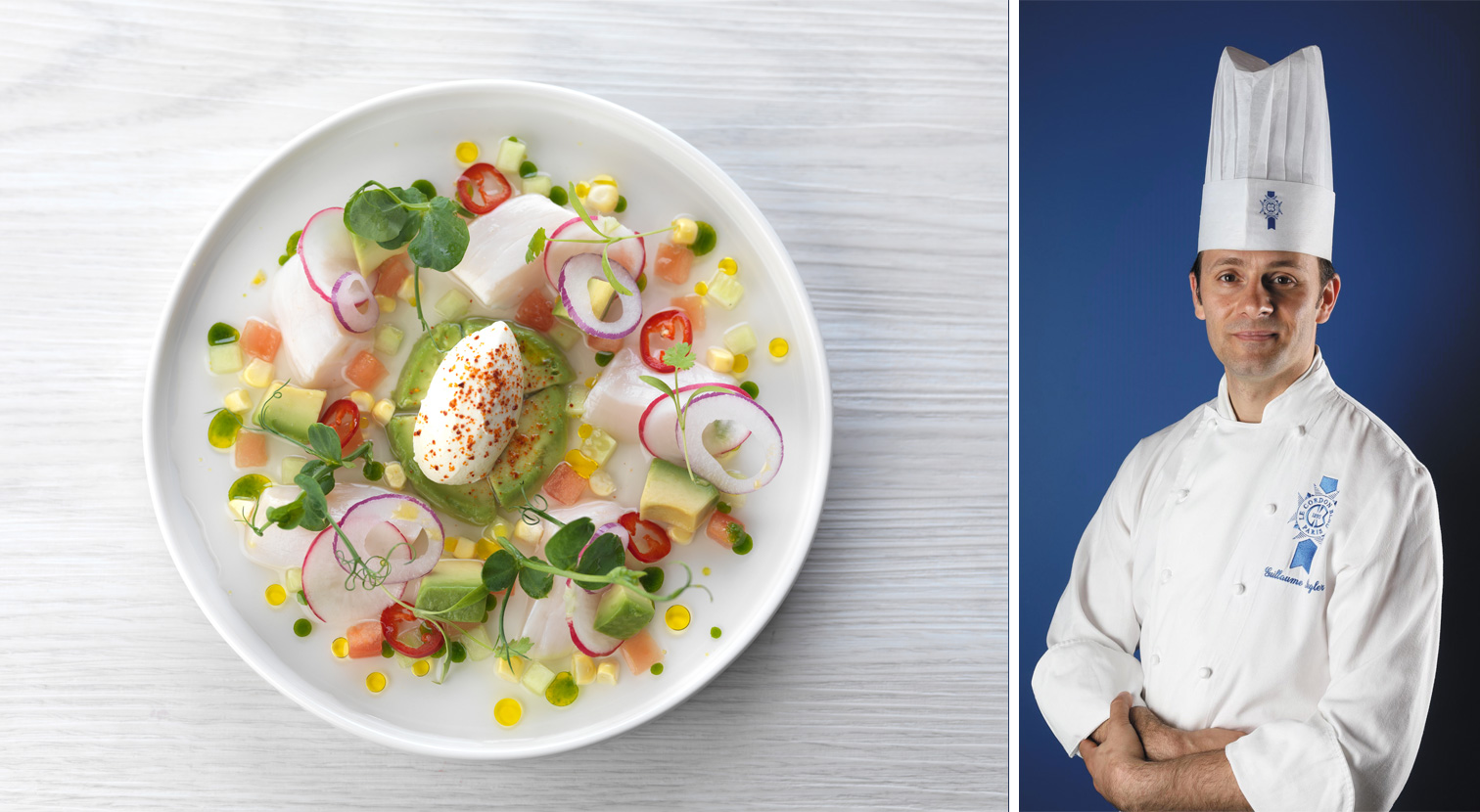What is the secret to eating healthily this summer?

Interview with Chef Siegler
A healthy and balanced diet plays a key role in maintaining good health, but following a diet tailored to individual needs requires a great deal of knowledge and effort.
Nutrition is directly linked to what we eat and therefore ingredients, their characteristics, nutritional intake, the way in which they are prepared and their seasonality. The Diploma in Gastronomy, Nutrition and Food Trends answers these needs.
Great care must be taken during summer due to high temperatures. Chef Instructor Guillaume Siegler gives some key advice about how best to adapt your diet and lifestyle to specific needs that arise during summer.
1. Make the most of the season and the finest ingredients it provides. Melon, watermelon, blackberries, cucumbers, courgettes, and bell peppers are just some of the seasonal ingredients which should be favoured for the high quantity of nutrients and water they contain.
2. To quench your thirst, choose whole fresh fruit which has a lower glycaemic index than fruit juice.
3. Eating more raw fruit and vegetables increases hydration and ensures that more nutrients and vitamins are absorbed. They are digested more easily if eaten raw at the beginning of a meal.
4. Be careful, however, not to overindulge when eating fruit! It contains a lot of water but can also contain high levels of sugar.
5. Prepare and protect skin from harmful UV rays, by eating raw vegetables such as carrots, or cooked ones such as spinach and sweet potatoes, which are packed full of beta-carotene and stimulate melanin (protective pigment).
6. In season, tomatoes, like watermelons, contain lycopene, a powerful antioxidant which notably acts against free radicals and protects skin from aging. Pack plenty into your diet by eating tomatoes with a drizzle of olive oil, tomato “concassée”, or tomato sauce.
7. Are you looking for some seasonal recipe ideas?
- French green bean and white peach salad with a drizzle of olive oil, sorrel or basil, and freshly ground pepper, sprinkled with fresh almonds
- Watermelon and gilled aubergine salad with basil
- Mixed tomato salad with creamy burrata, fresh raspberries and pomegranate seeds or pomegranate molasses (a tangy syrup used instead of vinegar)
8. Are you looking for ideas for sauces to accompany fish or white meat?
- Vierge sauce with anise seeds
- Salsa
Made from olive oil and fresh vegetables, these sauces increase nutrient and vitamin intake.
You can learn how to eat a balanced diet. A better diet can involve discovering new flavours. A variety of different foods, textures, and seasonal ingredients, guarantee a balanced diet and the good habits which need to be adopted for a sustainable and responsible diet. It is in this context, that the 3-month
Diploma in Gastronomy, Nutrition and Food Trends provides the keys with which to meet the needs of each individual.

